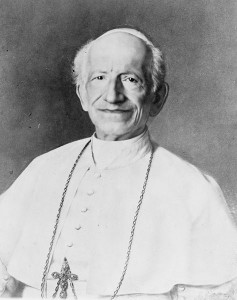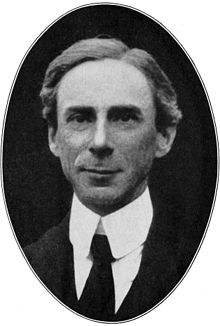Week in Freethought History (May 13-19)
Here’s your Week in Freethought History: This is more than just a calendar of events or mini-biographies – it’s an affirmation that we as freethinkers are neither unique nor alone in the world, no matter how isolated and alone we may feel at times.
 Last Sunday, May 13, but 440 years ago, was the election of Pope Gregory XIII at age 70 (1572). The former Ugo Boncompagni was noted for his attempt to force Catholicism back onto the intransigent Protestants – indeed, he struck a gold medal commemorating the massacre of Huguenots on Saint Bartholomew’s Day, 1572. But Gregory XIII is also remembered in history for one innovation: the reform of the calendar that now bears his name. Catholic Europe, and especially the vehemently anti-Protestant Gregory, saw the Gregorian calendar as a weapon in the Counter-Reformation, a singularly stupid strategy. As a result, Protestant countries in particular, including the United States, took centuries to adopt the new calendar and enter a more astronomically accurate age.
Last Sunday, May 13, but 440 years ago, was the election of Pope Gregory XIII at age 70 (1572). The former Ugo Boncompagni was noted for his attempt to force Catholicism back onto the intransigent Protestants – indeed, he struck a gold medal commemorating the massacre of Huguenots on Saint Bartholomew’s Day, 1572. But Gregory XIII is also remembered in history for one innovation: the reform of the calendar that now bears his name. Catholic Europe, and especially the vehemently anti-Protestant Gregory, saw the Gregorian calendar as a weapon in the Counter-Reformation, a singularly stupid strategy. As a result, Protestant countries in particular, including the United States, took centuries to adopt the new calendar and enter a more astronomically accurate age.
 Last Tuesday, May 15, but 143 years ago, the National Woman Suffrage Association (NWSA) was created by Susan B. Anthony and Elizabeth Cady Stanton – two famous Freethinkers (1869). The group joined with a less radical sister group and, on August 18, 1920, got the 19th Amendment ratified, giving women in the US the right to vote. There are still some countries, mostly Muslim, that don’t allow either sex to vote, but the trend is clear for the evolution of all other rights for women: they begin with a vote. Where were the Christian churches in this debate? Before the late 19th and early 20th centuries, a peasant woman in both Catholic and Protestant countries, was not a person. A husband could beat his wife, or sell her, take all her property and her children. Few occupations outside of wife and mother (or prostitute) were open to women. But when the churches realized that most of the reform was coming from atheists, agnostics and Quakers, they soon discovered God favored equality.
Last Tuesday, May 15, but 143 years ago, the National Woman Suffrage Association (NWSA) was created by Susan B. Anthony and Elizabeth Cady Stanton – two famous Freethinkers (1869). The group joined with a less radical sister group and, on August 18, 1920, got the 19th Amendment ratified, giving women in the US the right to vote. There are still some countries, mostly Muslim, that don’t allow either sex to vote, but the trend is clear for the evolution of all other rights for women: they begin with a vote. Where were the Christian churches in this debate? Before the late 19th and early 20th centuries, a peasant woman in both Catholic and Protestant countries, was not a person. A husband could beat his wife, or sell her, take all her property and her children. Few occupations outside of wife and mother (or prostitute) were open to women. But when the churches realized that most of the reform was coming from atheists, agnostics and Quakers, they soon discovered God favored equality.
 Last Wednesday, May 16, would have been the 100th birthday of Pulitzer Prize-winning American author “Studs” Terkel (1912). Terkel received the Pulitzer Prize for General Non-Fiction in 1985 for The Good War. He has also written such memorable oral histories as Hard Times (1970) and Working (1974). Born Jewish, this self-described “guerrilla journalist with a tape recorder” considered himself an atheist. In a 2001 Rolling Stone interview, Terkel said, “I think of myself as an agnostic, but an agnostic is really a cowardly atheist.”
Last Wednesday, May 16, would have been the 100th birthday of Pulitzer Prize-winning American author “Studs” Terkel (1912). Terkel received the Pulitzer Prize for General Non-Fiction in 1985 for The Good War. He has also written such memorable oral histories as Hard Times (1970) and Working (1974). Born Jewish, this self-described “guerrilla journalist with a tape recorder” considered himself an atheist. In a 2001 Rolling Stone interview, Terkel said, “I think of myself as an agnostic, but an agnostic is really a cowardly atheist.”
 It was also on, May 16, but 121 years ago, that Pope Leo XIII issued the encyclical Rerum novarum, on the “Condition of Labor,” about the relations of employer and employee (1891). That the churches provided any service whatsoever to working people until the 20th century, aside from relieving them under false pretenses of much of their hard-earned money, is about as phony a claim as that of faith-healers. “Let it be taken for granted,” wrote Leo, “that remuneration should be sufficient to maintain the wage-earner in reasonable and frugal comfort.” But when asked to define just what such a “living wage” should be, Leo fell mute. Worse, in 1931 Pius XI issued the encyclical Quadragesimo anno, which (¶¶ 91-94, 133) endorsed the Fascist-Corporate State. The Nazis eagerly complied, as did many other (mostly Catholic) countries. So, without God’s help, workers had to fight for and win the things we take for granted today: the eight-hour day, a five-day work week, overtime pay, workers compensation, retirement, health care and, most especially, the right to organize.
It was also on, May 16, but 121 years ago, that Pope Leo XIII issued the encyclical Rerum novarum, on the “Condition of Labor,” about the relations of employer and employee (1891). That the churches provided any service whatsoever to working people until the 20th century, aside from relieving them under false pretenses of much of their hard-earned money, is about as phony a claim as that of faith-healers. “Let it be taken for granted,” wrote Leo, “that remuneration should be sufficient to maintain the wage-earner in reasonable and frugal comfort.” But when asked to define just what such a “living wage” should be, Leo fell mute. Worse, in 1931 Pius XI issued the encyclical Quadragesimo anno, which (¶¶ 91-94, 133) endorsed the Fascist-Corporate State. The Nazis eagerly complied, as did many other (mostly Catholic) countries. So, without God’s help, workers had to fight for and win the things we take for granted today: the eight-hour day, a five-day work week, overtime pay, workers compensation, retirement, health care and, most especially, the right to organize.
 Last Thursday, May 17, was the 41st anniversary of the opening of the musical Godspell in New York (1971). Godspell ran for 2,651 performances on Broadway and features the parables and lessons of the Gospel according to Matthew, rather than the life of Jesus. The lessons in Godspell, are surprisingly secular; the parables are of the simple-minded 1970s variety: a gentle Jesus preaches virtuous behavior, adoration of God, doing good works, promoting justice and mercy, and rejecting materialism – without the inherent irony that, if you reject materialism, you pretty much guarantee you’ll never have anything material to reject! None of these things, except for loving God, requires a belief in the supernatural. However, we know that hell awaits the unbeliever because the song, “Learn Your Lessons Well,” threatens “You better pay attention, / Build your comprehension, / There’s gonna be a quiz at your ascension. / Not to mention any threat of hell, / But if you’re smart you’ll learn your lessons well!” In a bizarre twist for any Christian, Godspell ends with the crucifixion – but there is no mention of a resurrection!
Last Thursday, May 17, was the 41st anniversary of the opening of the musical Godspell in New York (1971). Godspell ran for 2,651 performances on Broadway and features the parables and lessons of the Gospel according to Matthew, rather than the life of Jesus. The lessons in Godspell, are surprisingly secular; the parables are of the simple-minded 1970s variety: a gentle Jesus preaches virtuous behavior, adoration of God, doing good works, promoting justice and mercy, and rejecting materialism – without the inherent irony that, if you reject materialism, you pretty much guarantee you’ll never have anything material to reject! None of these things, except for loving God, requires a belief in the supernatural. However, we know that hell awaits the unbeliever because the song, “Learn Your Lessons Well,” threatens “You better pay attention, / Build your comprehension, / There’s gonna be a quiz at your ascension. / Not to mention any threat of hell, / But if you’re smart you’ll learn your lessons well!” In a bizarre twist for any Christian, Godspell ends with the crucifixion – but there is no mention of a resurrection!
 Yesterday, May 18, would have been the 140th birthday of British mathematician, philosopher and Nobel laureate Bertrand Russell (1872). His chief work was the Principia Mathematica (1910-1913), a three-volume work on the foundations of mathematics, co-authored by Alfred North Whitehead. Throughout his life, Russell was an outspoken critic of religion. In Why I Am Not a Christian, he wrote, “You find as you look round the world that every single bit of progress in humane feeling, every improvement in the criminal law, every step toward the diminution of war, every step toward better treatment of the colored races, … every moral progress that there has been in the world, has been consistently opposed by the organized Churches of the world. I say quite deliberately that the … Christian religion … has been and still is the principal enemy of moral progress in the world.”
Yesterday, May 18, would have been the 140th birthday of British mathematician, philosopher and Nobel laureate Bertrand Russell (1872). His chief work was the Principia Mathematica (1910-1913), a three-volume work on the foundations of mathematics, co-authored by Alfred North Whitehead. Throughout his life, Russell was an outspoken critic of religion. In Why I Am Not a Christian, he wrote, “You find as you look round the world that every single bit of progress in humane feeling, every improvement in the criminal law, every step toward the diminution of war, every step toward better treatment of the colored races, … every moral progress that there has been in the world, has been consistently opposed by the organized Churches of the world. I say quite deliberately that the … Christian religion … has been and still is the principal enemy of moral progress in the world.”
 Today, May 19, but 476 years ago, was the date that Anne Boleyn, the second wife of Henry VIII, was executed for adultery (1536). King Henry married her, secretly, in early 1533, when she was pregnant with the future Queen Elizabeth. But for Henry, an heir was not good enough: Anne failed to produce a male heir. It is instructive to note that adultery was treated by ancient civilizations as a property crime, with punishment benefiting only an injured husband. The biblical story of Potiphar’s wife was adapted from the Egyptian “Tale of Two Brothers” to illustrate a similar condemnation in the Old Testament. Adultery is addressed by the Seventh Commandment, but, outside of fundamentalist Christian or Muslim circles, the penalties for adultery are not so drastic, if there are any at all. In fact, our modern, secular society sees adultery rarely punished in law, except as grounds for divorce. And the injury is considered equally grievous for a husband or a wife. Yet the “property crime” mentality persists, as evidenced in the 2002 film Unfaithful, in which the aggrieved husband kills his wife’s lover but not his wife. And in the case of Anne Boleyn, one might think divorce a lesser crime than execution, but that wouldn’t have been the “Christian” thing to do!
Today, May 19, but 476 years ago, was the date that Anne Boleyn, the second wife of Henry VIII, was executed for adultery (1536). King Henry married her, secretly, in early 1533, when she was pregnant with the future Queen Elizabeth. But for Henry, an heir was not good enough: Anne failed to produce a male heir. It is instructive to note that adultery was treated by ancient civilizations as a property crime, with punishment benefiting only an injured husband. The biblical story of Potiphar’s wife was adapted from the Egyptian “Tale of Two Brothers” to illustrate a similar condemnation in the Old Testament. Adultery is addressed by the Seventh Commandment, but, outside of fundamentalist Christian or Muslim circles, the penalties for adultery are not so drastic, if there are any at all. In fact, our modern, secular society sees adultery rarely punished in law, except as grounds for divorce. And the injury is considered equally grievous for a husband or a wife. Yet the “property crime” mentality persists, as evidenced in the 2002 film Unfaithful, in which the aggrieved husband kills his wife’s lover but not his wife. And in the case of Anne Boleyn, one might think divorce a lesser crime than execution, but that wouldn’t have been the “Christian” thing to do!
We can look back, but the Golden Age of Freethought is now. You can find full versions of these pages in Freethought history at the links in the American Heathen blog, which take you to my blog, FreethoughtAlmanac.com.

